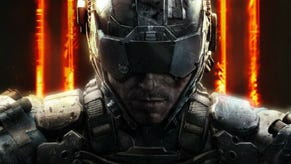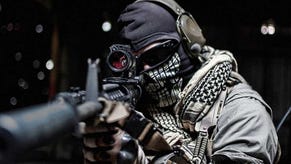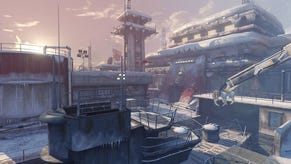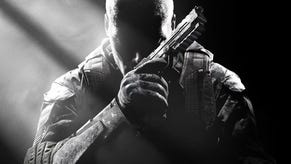Can Call of Duty: Ghosts' multiplayer keep up with the dynamic age?
Call of Duty: Ghosts is a static arena shooter in an increasingly dynamic industry. VG247's Dave Cook quizzes co-developer Raven Software on how it hopes to modernise the format going into next-gen.
I was lucky enough to see all of the big next-gen shooters at gamescom last month. Across Titanfall's bold attempts to shake up the arena shooter format, Battlefield 4's dynamic Levolution gameplay and Destiny's sprawling open world scope, there's a clear and common desire to shake up what it means to be an FPS in modern times.
Then there was Call of Duty: Ghosts.
While there was plenty of next-gen innovation to be found in the muggy halls of Cologne's Koelnmesse centre, I didn't see a seismic shift in Ghosts. It didn't feel like a next-gen leap when I sat down to play it on Xbox One. I think part of the problem is that Activision is now unable to shake-up the Call of Duty formula in its entirety for fear of alienating staunch fans. It's a tricky situation.
In a bid to add new flavour to the mix, Infinity Ward has introduced dynamic maps, but I was disappointed to see 'that' exploding gas station topple the exact same way each time I saw it fall. Similarly, only some walls can be destroyed, and the baseball stadium in new map Strikezone can only be levelled by a special care package reward.
After a few matches it became clear why Activision has refrained from offering total, real-time destruction online. The way Battlefield 4's environments corrode in real-time with every impact is mighty impressive, but to Infinity Ward's credit I think if Call of Duty: Ghosts had the same level of decay where a player could tear down any wall they pleased, then it would cease to be a Call of Duty title.
I firmly believe that to take away the static walls and arena nature of the series would be to remove its base appeal, and while it confuses me whenever people decry Activision for sticking to its clearly lucrative and functional format, I agree that something has to give eventually. My gut tells me that whatever Sledgehammer Games has been working on all these years will bring about that big, next-gen change many of you yearn for, but it remains to be seen.
I also have to make clear that I'm not saying Ghosts is a bad game, but it is an overly-familiar experience. If you were looking for a big next-gen leap then you might come away with a sense of deja vu. While in Cologne I asked co-developer Raven Software how pressure from gamers to shake up the format with destruction stacks against the static format that Call of Duty has made its own.
Senior creative director Eric Biessman explained, "Call of Duty, at its core line is, we want you to learn the tactics of a map, we want you to be able to own that map, we want you to be connected to it. So we don't want to have damage everywhere, we don't want you to be able to blow up every wall because we want you to know 'This is how I want to play the map, this is where I want to go, this is where I do really well.
"Additionally though, we did want to offer a little player choice and in some cases a lot of player choice if you've seen Strikezone where it totally changes the playing field. But that's something you have to earn as a care package, you have to protect it as it falls and you have to call it in. So yeah there's different variances as to how much change there is across all the maps, but at the end of the day we still want players to be able to know a map, control a map and really live a map. Player choice is a huge part of that."
As a player who loves to run around Call of Duty maps with a light load-out, skirting around corners and screen-burning corridor lay-outs into my mind to help me get the drop on my opponents, I absolutely agree with Biessman's approach. That said, while the Strikezone map's big cataclysm is merely triggered event - rather than an organic transition - it does force you to learn two map layouts in the same environment, as the twisted mess that remains is quite different from how the location starts off. For some, this simply won't be change enough.
I wasn't blown away by Ghosts from a technical or visual stand-point, but seeing as it's a cross-gen title you have to assume that there has been some compromise to allow for content parity over current and next-gen format. Infinity Ward isn't alone in this as many studios are currently facing the same issue, so I asked Biessman for his thoughts on the matter.
He replied, "Yeah, I mean that is a huge consideration and the idea is we want people to enjoy the game. Regardless of what you're playing on we want you to have a great time. We want it to be fun. The next-gen is coming but there's still a huge market, there's still a huge amount of fans that are playing on current-gen or their PCs - their lower PCs - and so we want to make sure they're able to enjoy the game just as much as someone who's buying a new system.
"I think that what's great about the next-gen systems is they open up doorways, especially for us they open up a lot of artistic things that we can push like ACR lighting ... I could throw a lot of technical terms at you, but really at the end of the day it lets us push the look. Conversely we needed to be extra careful about - especially in multiplayer where line of sight is important - we needed to be sure we kept it as beautiful as we could push it without breaking that gameplay."
While you won't be able to tear down skyscrapers or summon hulking mechs from orbit in Call of Duty: Ghosts, you will find that the map design has been kicked up a notch. The snow-filled Whiteout is one of the biggest CoD maps I've played in a long while, and it's teeming with hidden routes, different layers and vantage points for eagle-eyed soldiers to exploit. Between its run aground ship, cracked ice fields and quaint fishing village, the locale caters to all styles of play from long, medium to close range.
I asked Biessman if this increased scope was indicative of a new design philosophy across Ghosts' group of co-developers. "Well what we wanted to do was offer a lot of variety to players, so you can see some maps like Whiteout and some we're not talking about yet that are on the larger scale. You'll see some like Strikezone [which is] a very close map, so it's all about that quicker, 'Where am I going? What am I going to do here?' I'm glad you saw that as it was one of our goals to offer a good variety of maps."
Compared to the Modern Warfare 3 map set - which I personally found uninspired - the maps I played were already more enjoyable. What took me by surprise however, was the game's pace. Ghosts is a fast experience, and I found myself slotted several times while trying to get my bearings. It's a tough playing field, and this was made clear in new game mode Cranked, which sees your speed increase with each kill. The caveat is that you must get another kill within 30 seconds or your soldier will explode. It's insane and is guaranteed to make you stress.
Field operations also add tension to each match. When you kill an opponent they'll drop a briefcase icon. Pick it up and you'll be assigned a task such as kill two opponents while prone or shoot an enemy with their own weapon. If you succeed you'll earn a care package that might include anything from a dynamic map trigger to a Sat-Com, which replaces the series' old UAV system. These challenges add another layer of consideration to how you move and act in the field, making the twitch format more chaotic then before.
With the expanded create-a-soldier system that removes identical avatars from online play, a hybrid load-out system that blends Black Ops 2's 'Pick Ten' system and Modern Warfare 3's Strike Packages, along with a move away from air-dominating killstreaks, Call of Duty: Ghosts is yet another solid franchise refinement, rather than a complete revision. It's perfectly fine and enjoyable, but as Activision's competitors offer new alternatives to tried models, I'm wondering how much longer this can continue. How many more times will players settle for a small step while CoD's competitors take running jumps ahead?
If you've played any game in the series then you already know how the majority of Ghosts handles and functions before you've bought your copy. Depending on your own personal take on the series' iterative, yearly nature, this will either come as a comfort or a grave concern.
On which side of the fence do you lie?











